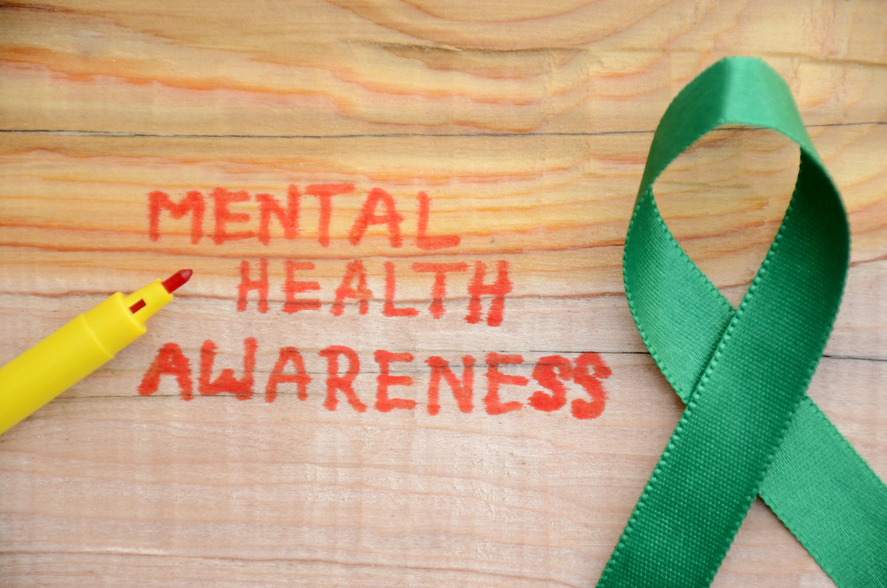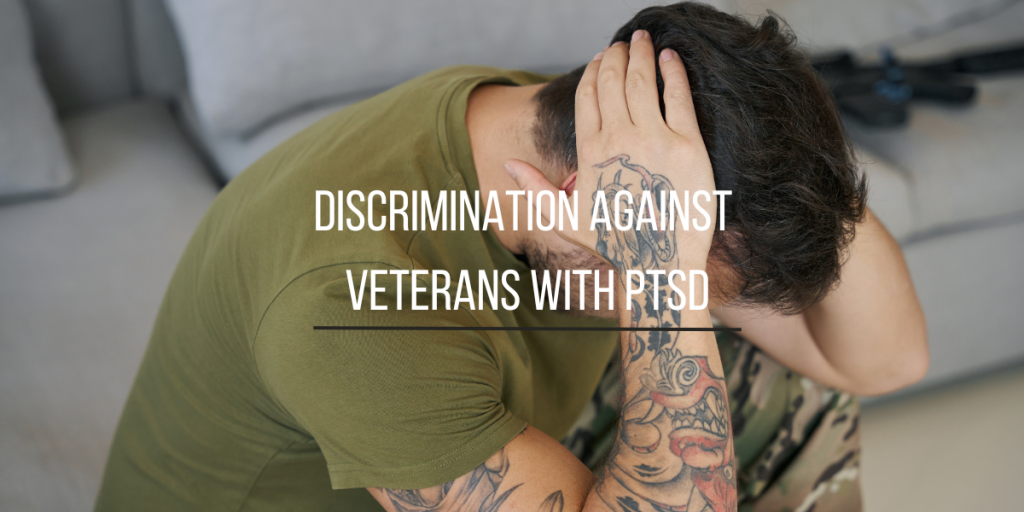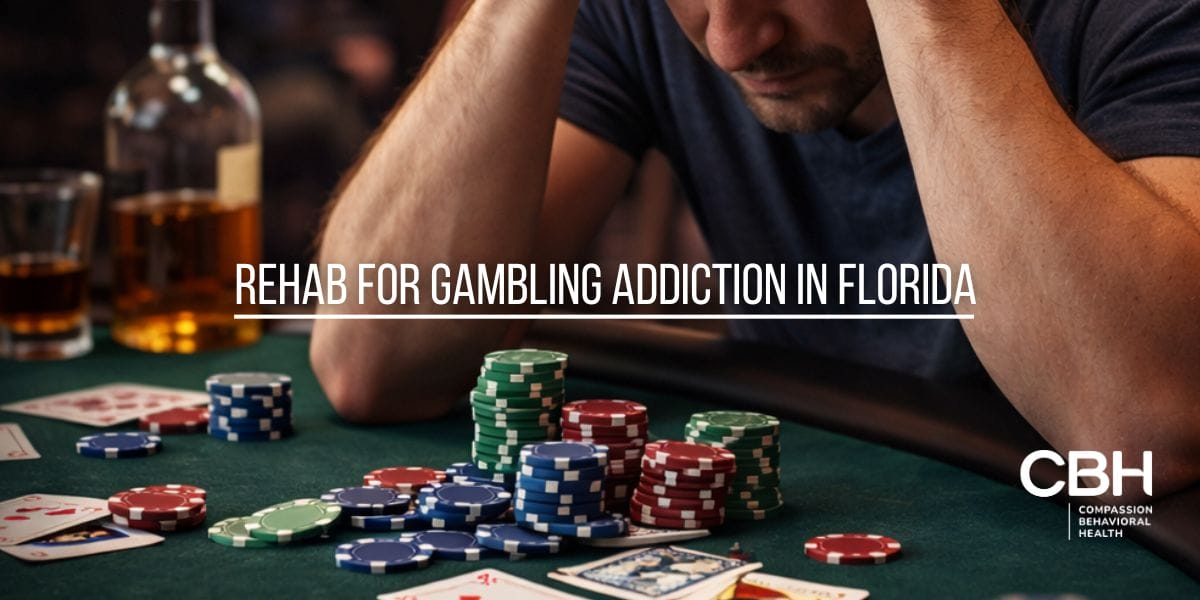Post-Traumatic Stress Disorder (PTSD) is a complex mental health condition that affects millions of people worldwide. Among those who experience PTSD, veterans are among the most impacted. Serving in the military exposes individuals to traumatic events that can have lifelong psychological effects. Unfortunately, many veterans with PTSD also face discrimination due to the misconceptions and stigmas surrounding this disorder.
The Nature of PTSD in Veterans

Before delving into the issue of discrimination, it is important first to understand what PTSD is and how it affects veterans. PTSD, or Post-Traumatic Stress Disorder, is a psychiatric condition that can develop after experiencing or witnessing a traumatic event. For veterans, this trauma is often a result of combat exposure, where they may have been exposed to violence, injury, or the loss of comrades.
PTSD manifests itself in various ways, including intrusive memories or flashbacks, nightmares, severe anxiety, and avoidance of certain situations that may trigger distressing memories. These symptoms can significantly interfere with a veteran’s daily life and functioning, affecting their relationships, work, and overall well-being.
It is important to note that PTSD is not limited to combat-related trauma. Veterans can also develop PTSD from other traumatic experiences during their military service, such as sexual assault, accidents, or natural disasters. The impact of PTSD on veterans’ lives cannot be overstated, as it can lead to significant distress and functional impairment.
Defining Post-Traumatic Stress Disorder
Post-Traumatic Stress Disorder (PTSD) is a recognized psychiatric disorder that develops following exposure to a traumatic event or events. It is characterized by various symptoms such as intrusive thoughts, nightmares, avoidance behaviors, and hyperarousal. These symptoms can be persistent and impairing, leading to significant distress and functional impairment in the individual’s life.
PTSD is not a sign of weakness or a character flaw. It is a natural response to an abnormal and distressing event. The brain’s response to trauma is complex, involving changes in the brain’s structure and chemistry. These changes can affect the way a person thinks, feels, and behaves, leading to the development of PTSD.
It is important to seek professional help if you or someone you know is experiencing symptoms of PTSD. Treatment options, such as therapy and medication, can help manage the symptoms and improve overall well-being.
The Prevalence of PTSD Among Veterans

The prevalence of PTSD among veterans is alarmingly high. Research suggests that up to 20% of veterans from recent conflicts, such as those in Iraq and Afghanistan, are estimated to have PTSD. Among Vietnam War veterans, the rate of PTSD is estimated to be even higher, affecting approximately 30% of this population. These statistics highlight the substantial impact of PTSD on veterans’ mental health and well-being.
It is important to recognize that the prevalence of PTSD among veterans may be underestimated, as many individuals may not seek help or receive a formal diagnosis. The stigma surrounding mental health issues in the military can prevent veterans from seeking the support they need.
Furthermore, it is crucial to acknowledge that PTSD does not only affect the individual veteran but also has a ripple effect on their families and communities. The emotional and psychological toll of PTSD can strain relationships, disrupt family dynamics, and contribute to social isolation.
Efforts to raise awareness about PTSD and improve access to mental health services for veterans are essential. It is crucial to provide comprehensive support systems that address the unique needs of veterans and promote their overall well-being.
[ctabox]Are you or a loved one seeking PTSD Treatment?[/ctabox]
The Many Faces of Discrimination
In addition to the challenges posed by PTSD itself, veterans with this disorder often face discrimination in various aspects of their lives. Discrimination can manifest in different forms, including employment, social interactions, and access to healthcare.
Employment Discrimination

One significant area in which veterans with PTSD face discrimination is employment. Despite their valuable skills and experiences gained during military service, veterans often encounter barriers when seeking employment opportunities. Employers may harbor misconceptions about veterans with PTSD, assuming that their condition will make them unreliable or potentially violent.
These stereotypes can lead to discriminatory practices, such as excluding veterans with PTSD from job considerations or denying them reasonable accommodations that would allow them to perform their duties effectively. As a result, veterans with PTSD may find themselves in a difficult position, struggling to secure meaningful employment and reintegrate into civilian life.
For example, a study conducted by the Department of Veterans Affairs found that veterans with PTSD are more likely to experience unemployment compared to their counterparts without the disorder. This disparity highlights the impact of discrimination on veterans’ ability to find suitable employment.
Furthermore, even when veterans with PTSD are employed, they may face workplace discrimination, such as being passed over for promotions or experiencing hostility from colleagues who do not understand their condition. These additional challenges can further contribute to the difficulties veterans with PTSD face in the workforce.
Social Discrimination
Social discrimination is another significant concern for veterans with PTSD. People may hold misconceptions about PTSD, perceiving those with the disorder as dangerous or unpredictable. This stigma can lead to social exclusion, isolation, and strained relationships. Veterans may feel reluctant to disclose their PTSD diagnosis, fearing judgment or rejection from others.
These negative attitudes towards veterans with PTSD can have far-reaching consequences. For instance, veterans may avoid social gatherings or public spaces, limiting their opportunities for social interaction and support. The lack of understanding and empathy from others can exacerbate feelings of loneliness and contribute to a sense of alienation.
Moreover, the impact of social discrimination on veterans with PTSD extends beyond personal relationships. It can affect their ability to participate in community activities and organizations, hindering their integration into civilian life. This isolation can further perpetuate the cycle of discrimination and exacerbate the challenges veterans with PTSD face in their daily lives.
Efforts are being made to combat social discrimination against veterans with PTSD. Organizations and advocacy groups are working to raise awareness and promote understanding of the disorder, aiming to reduce stigma and create a more inclusive society for veterans.
Healthcare Discrimination
Access to quality healthcare is crucial for individuals with PTSD, but veterans often face discrimination in this area as well. Some healthcare providers may lack the knowledge and understanding necessary to effectively diagnose and treat PTSD. Consequently, veterans may encounter challenges in finding healthcare professionals who can provide appropriate care and support.
Additionally, veterans with PTSD may face long wait times for specialized mental health services, further exacerbating their difficulties in accessing the care they need. This delay in treatment can have serious consequences, as timely intervention is crucial for managing and recovering from PTSD.
Furthermore, the stigma surrounding PTSD may discourage veterans from seeking help altogether, fearing judgment or negative experiences with healthcare providers. This discrimination and lack of access to proper care can have severe consequences for veterans, potentially exacerbating their symptoms and hindering their PTSD recovery.
Efforts are being made to improve healthcare services for veterans with PTSD. Initiatives such as increased training for healthcare providers, the establishment of specialized PTSD clinics, and the expansion of telehealth services aim to address the barriers veterans face in accessing quality care.
It is essential to recognize and address the discrimination faced by veterans with PTSD in all areas of their lives. By promoting understanding, challenging stereotypes, and advocating for equal opportunities, we can create a more inclusive society that supports the well-being and successful reintegration of our veterans.
The Impact of Discrimination on Veterans with PTSD
The discrimination that veterans with PTSD face has far-reaching consequences for their overall well-being and quality of life. It exacerbates the already challenging nature of living with PTSD and can have detrimental effects on various aspects of their lives.
Psychological Consequences
Discrimination can have severe psychological consequences for veterans with PTSD. Experiencing discrimination can worsen symptoms of PTSD and contribute to feelings of shame, guilt, and low self-esteem. It can also heighten feelings of isolation and trigger or exacerbate other mental health conditions, such as depression and anxiety.
Furthermore, the cumulative impact of discrimination can lead to a diminished sense of hope, further compromising a veteran’s PTSD recovery journey. These psychological consequences highlight the urgent need for awareness and support for veterans with PTSD.
Economic Consequences
Discrimination can also have significant economic consequences for veterans with PTSD. Difficulties in securing employment, as a result of discriminatory practices, can lead to financial instability and poverty. Without stable income and meaningful employment, veterans may experience increased stress and face challenges in meeting their basic needs, further perpetuating the cycle of discrimination and disadvantage.
Additionally, the economic consequences of discrimination may hinder veterans’ access to necessary healthcare and support services, compounding the challenges they face in managing their PTSD.
Legal Protections for Veterans with PTSD
In recognition of the discrimination faced by veterans with PTSD, legal protections have been put in place to safeguard their rights and ensure equal treatment in various domains of life.
Understanding the Americans with Disabilities Act
The Americans with Disabilities Act (ADA) is a federal law that prohibits discrimination against individuals with disabilities, including mental health conditions like PTSD. Under the ADA, employers must provide reasonable accommodations to employees with PTSD, allowing them to perform their job duties effectively. These accommodations may include flexible schedules, modifications to the work environment, or supportive resources.
Veterans’ Rights Under the Rehabilitation Act

The Rehabilitation Act of 1973 provides another layer of protection for veterans with PTSD. This Act prohibits federal agencies, contractors, and programs receiving federal funding from discriminating against individuals with disabilities. It ensures that veterans with PTSD have equal opportunities for employment, services, and benefits.
These legal protections aim to promote equality and combat discrimination, helping veterans with PTSD to navigate the challenges they face and obtain equal access to opportunities and support.
Strategies for Combating Discrimination
In order to combat discrimination against veterans with PTSD effectively, various strategies need to be implemented at societal, institutional, and individual levels.
Advocacy and Awareness Campaigns

Advocacy and awareness campaigns play a crucial role in challenging misconceptions and reducing the stigma associated with PTSD. These campaigns can educate the public about the realities of PTSD, highlight the strengths and capabilities of veterans, and promote empathy and understanding.
Additionally, ongoing efforts to raise awareness among employers, healthcare providers, and the general public can help create an environment that is more accepting and supportive of veterans with PTSD, reducing the likelihood of discriminatory practices.
Policy Recommendations
Policymakers also play a crucial role in addressing discrimination against veterans with PTSD. By implementing policies that promote equal treatment and access to opportunities, policymakers can help reduce the barriers faced by veterans with PTSD in the workforce, healthcare settings, and society at large.
Furthermore, policymakers can provide funding for research and initiatives aimed at improving mental health services and support systems for veterans with PTSD. Investing in these areas can contribute to a more inclusive and supportive society for veterans.
In conclusion, discrimination against veterans with PTSD is a serious issue that requires attention and action. By understanding the nature and prevalence of PTSD among veterans, recognizing the different forms of discrimination they face, and implementing strategies to combat discrimination, we can create a more equitable and supportive society for veterans with PTSD. It is essential that we work together to ensure that veterans receive the respect, understanding, and opportunities they deserve.
Get The Best PTSD Treatments Today
At Compassion Behavioral Health, we believe that every veteran deserves comprehensive care and support, free from the shackles of discrimination. Our mission is to provide a holistic approach to mental health, addressing the unique needs and challenges faced by veterans with PTSD. By offering specialized treatments, counseling, and community outreach programs, we aim to bridge the gap between veterans and the society they once served so selflessly.
We advocate for a world where PTSD is understood, not stigmatized. Where veterans are valued, not marginalized. Through collaboration with other organizations, communities, and policymakers, we endeavor to create a robust support network for veterans and their families. Our programs are designed to empower veterans, enabling them to reclaim their lives and reintegrate into society successfully.
To learn more about our evidence-based VETERAN PTSD Treatment Program, call us or contact us online today.



